Bade ka Sukka: The Shame in my Lunchbox

Rida Fathima grew up distancing herself her father’s dry beef ritual, never participating, and only observing him at a distance. But as an adult, she finds herself returning to occupy a space she once relegated to resentment, shame and discreetness.
At 21 now, I relish beef.
I never pass up the chance to dig in when my mother makes ground beef from scratch. This wouldn’t be the case had it not been for my closest friends and a renewed sense of kinship fostering itself in my late teenage years all the way into adulthood. Nouveau relationships forged in university worked to undo the blotches of my strained relationship with beef, with my language and community. To map the trajectory of my shame and its metamorphosis after a long decade is to map the politics of beef and consumption for the Muslim polity in India.
It is incriminating how memories are altered radically by the space one occupies today; it is all the more transformative how nostalgia morphs to take the shape of a ghost, one that you chase after in your early twenties.
Unable to Look Away, Unable to Participate
It has been over half a decade since I perused the secluded area of the home I grew up in wherein my father would use the clothesline to hang and dry his meticulously sliced beef. The house belongs to someone else now and I will, most likely, never see the insides of it again. The memory however, of my father flooding the back of the house with the pungent smell of dried-up beef remains imprinted in flesh, even after all these years.
I mention the ‘pungent’ smell of dry beef because I dreaded that period of the year, as a child. I abhorred the smell, and my reprehension was as vehement as my father’s determination to commit to this yearly ritual. The guest-room would be occupied with slices of beef, for my father to finally cluster them in lines. He thoroughly enjoyed the process; my mother was ambivalent at best, and I remained a scorned child. He would chidingly invite me in. I suppose he believed I was curious; or he saw an opportunity for a moment of understanding between us through this ritual and recipe. But I always stood at a distance, unable to look away, unable to participate, a moment of stasis between us. The festivity produced in me a conflicted paralysis. He would finally let the marinated slices dry on the terrace before distributing it among friends and family. To his annual dismay, I took no part in this routine.
The ropes of marginalisation that have tightened around Muslim cuisine and culture have always been present. Even before I could comprehend it, I could feel it in our laps as children. Growing up in a small town did not afford me the escape from shame. Lunchtime for children is almost always a time of profound joy, perhaps one of the first spaces a child learns the necessity of the collective, taking shape in shared lunchboxes and communal plates. The school lunch is a site of exploration for a child unfamiliar with the expanse of food outside the well. The lunch break for me however was bittersweet. I would look forward to it earnestly, under the one condition — that I knew of my lunchbox’s contents, sanitised and ‘clean’.
“Lunchtime for children is almost always a time of profound joy, perhaps one of the first spaces a child learns the necessity of the collective, taking shape in shared lunchboxes and communal plates. Lunch break for me however was bittersweet.”
It was almost routine, every day, to mechanically repeat to my mother — no meat. She refused to take me seriously until one day I landed home in tears at the age of 8, because my friends at the time had circled around me to proclaim that they wouldn’t talk to me because I had carried biryani in my box. They found the elaborate theatrics of refusing to touch me playful, and even, friendly. Things would return to normalcy the very next day, and I patted myself on the back for having found my way out of torturous recesses and a way into childlike friendships. When chicken alone could elicit such a tremendous reaction, my father’s bade ka sukka remained unthinkable.
I did not comprehend the radical impact these sequestered events bore. I moved through my late teenage years feeling a little out of place, a little forlorn, always on the edge of things, on the precipice of a culinary familiarity that everyone in my household was privy to, but me. I think it was my three years in university that equipped me with the language to articulate the dissonance and debilitating distance I felt from my own.
A Language of Silence
The intersection of food and history has always been a cornerstone of culture; the way food habits are moulded and endangered by the space you occupy in an otherwise fraught and frayed hegemonic landscape is an ever-present question. Food is heavily political in the way it has been weaponised and wielded to maintain the nexus of caste oppression. Dalit food histories reveal stories of brutal caste oppression rooted in the margins of food and consumption, there is little-to-no room in mainstream media for the disconcerting stories of butcher families, the criminalisation of meat and identity in urban depoliticised food history spaces. There is a silence that claims our households as well, a nondescript privacy that learns to keep our food cultures at arm’s length from the epicentre. My parents practiced it, and so did I. I wonder how often do families like ours pass down recipes coupled with careful reticence.
The materiality of beef in the country is tumultuous to say the least, the historical ramifications of its consumption has resulted in marginalization and violence. The scores of mob lynchings of young Muslim men massacred that are soaked into the fabric of the state is far from irregular. The beef ban was not simply a desecration of our cultural appetite but a deliberate corrosion of identity rooted in food practices. At a time when our lives are up for grabs, cheapened to maim and kill, with morsels of our food deemed controversial, it becomes more than fundamental to protect our culinary anecdotes and eating practices.
My father only ceased his cooking after the family scattered. I moved away for pre-university education, and he did not possess the urgency to dry his marinated beef. After moving close to his ancestral house, I believe he resumed his habit once again. It is one of our household ironies that I grew up to crave the very space I resented. After all these years, I want to negate the resentment, shame and discreetness I harboured as a child. Those are big emotions for a child to carry, and I wonder if only my expanse of adulthood could unburden some of it.
Like our culture and eating habits, even our shame is highly guarded and private. Such is the nature of our kitchens as well, more often than not they are hidden away in the deepest corner of the house, away from the outside view. I would starve myself on days my mother would pack me meat, or I would bury it so deep in my lunchbox. I couldn’t afford myself the luxury of hiding away and eating my food. The shame had deeply penetrated into my bones and I did not even have the language for it. When festivities would begin, they would erupt; children were unabashed in sharing their special lunch boxes, a public spectacle of joy. I remember feeling a pit of simmering envy, our food and our recipes would rarely make it to the conversation, our kitchens were tucked away and the only release would be the Iftaar parties that my father’s friends and colleagues would throw. Our food would be relished and limited to our ghettoes, our houses, amongst our own people.
“Like our culture and eating habits, even our shame is highly guarded and private. ”
I Do Not Remember My Father’s Recipe
While I do not remember the taste of my father’s recipe anymore, I do remember what it felt like to be in a room full of my family and friends of my parents. Iftar is an abundant time to experience the full expanse of love and faith, no matter how little of it you possess, the laughter and banter echoed through several rooms in the house. Iftar is where I have forged some of my fondest childhood memories, awaiting my turn at the table, sharing tales and stories with women much older than me, tugging at my father’s jhubba routinely to ask for more kebabs. Iftar was also a solemn reminder of the duplicitious lives we led, or rather, I led as a child. Much of it remains true to this day, despite the resistance of our culture, the Indian Muslim is a remnant of the partition — unfit of belonging, suspended in the middle, relegated to the margins.
Even when our food makes it to the public realm, it is subject to stringent surveillance and a patronising reception. I remember visiting the Ramzaan mela a month ago and it was of no surprise that in the premises of the stalls, selling beef is prohibited. Instead, beef is sold in the corner-most stall near the local mosque. Even in the city, certain Muslim ghettoes otherwise shrugged off as unclean and unsafe are heavily crowded by the urban elite during the month of Ramadan. My household recipes find no room in the urban bourgeoisie imagination; for many young liberals, beef becomes a means of rebellion against their bigoted parentage, the irony of which is not lost on me as I inspect my very own relationship with beef. There is a wound in the place of memory, reminding us that our right to consume our own cultural practices is always a private affair and a negotiation, with the state apparatus, with the hegemonised polity, with the numerous studies and papers written about us, against us, for us, the list goes on.
“I remember feeling a pit of simmering envy: our food and our recipes would rarely make it to the conversation; our kitchens were tucked away and the only release would be the Iftaar parties that my father’s friends and colleagues would throw. Our food would be limited to our ghettoes, our houses, amongst our own people. ”
The informal butcher families took a severe hit when beef was banned in the state, in addition to the very fundamental erasure of their bodies, economic destitution became routine for many working class muslim families. While high-end restaurants continued to serve steak, the beef ban affected working class muslims and dalit establishments the most. Despite public discourse and protests erupting in multiple states over the contentious beef ban, the nation has practiced willful ignorance in understanding that the nature of our lives and our community, as we hide in plain sight from the threat of cow vigilantism, surviving in the ancestral passing down of stories and tradition, under the looming threat of ethnic cleansing.
Oppression, Marginalisation, Ghettoisation, Erasure
For the urban Muslim, the politics of food are crystallised in the stasis of crippling alienation and isolation. The memories of my father’s arduous labour into making beef sprang up in flesh and blood in my early university years, my friends and I would frequent military hotels and share a plate of parotta and beef. Gradually, I felt the shame withering away to take the form of something new and alien — a refurbished acceptance in embracing our palate and cuisine, that had been tucked away so carefully in the back of my mind. A comfort crept into my conversations with my peers, the buried nostalgia of my father’s recipe was transforming into a thing of fondness and longing. To feel hunger pangs for a food I had shunned, after nearly a decade, became both a site of catharsis and dignity.
The politics of food is a question that engulfs the subcontinent, I became hyper-aware of it in my first year of college as we perused through many such stories in one of my early courses in University. As I juxtaposed my experiences alongside the literature we were reading, a consciousness was at the brink of development.
At a crucial point, I found myself writing about alienated food heritages in university, it was a simple poem but writing it, as mediocre as it may have been for a 19-year-old only beginning to grasp the extent of isolation that urbanised othering had produced for me, it formed a complete circle of understanding, and perhaps, the beginning of a reconciliation.
The tryst between Muslim-Dalit literature and their forgotten food histories is a long one; literature has provided a repository of stories. Even in moments of transit and dying cultures, the literature has proved to be the archival milestone marking our identities and our cultural relics.
When the question, Why Politicize Food? props up, I grimace. Oppression, marginalisation, ghettoisation, erasure has crucially marked and marred the cultural landscape of Muslims. Our livelihoods have been systematically obstructed and uprooted, our mothers have lost their sons to rabid anti-Muslim rhetoric. Our food seldom escapes this rhetoric, our practices and lives are wrung dry on the double-edged sword of hyper visibility and invisibility all at once. For example, beef only entered the popular discourse once the ban was imposed, researchers only flocked to envision the historical repression of beef consumption once Muslim lives were more so publicly endangered than ever, despite the epistemological violence that has been unleashed on the community reducing us to mere subjects of discourse, there is seldom any room for those who have been materially devastated by the violent dehumanisation of identity and consumption.
The dehumanisation isn’t limited to the ambit of public discourse; it makes its way into our households as shame manifests. All those years I spent at the dinner table with my family chiding the texture of beef, tactfully battering the reasons behind my disdain. While the taste of such painful reminiscence persists, the taste of beef is far more overpowering and gratifying than the evocation of the exposed past. The reactionary urge to assimilate within the Brahmanical purity fold needs to be rejected for all its violence.
My mother no more shies away from sending Bade ka Sukka every other week. Our cultural histories may have been pedagogically removed, our practices may have been violently repressed, our tongues and palettes exiled to the periphery, but much of our assertions continue to be passed down from one generation to the other. The Muslim household and our kitchens remain sanctuaries of utmost comfort, joy, and radical kinship, in the face of persecution.
Bade ka Sukka Recipe: A Recipe as I Remember It
Ingredients
1 kg beef
For marination -
Garam masala, to taste
Turmeric, to taste
Salt, to taste
Garlic paste, to taste
Ginger paste, to taste
Method
Wash and rinse the meat. Let it to dry after wrapping it in muslin cloth
Cut 6-8 inches long slices of the meat.
Marinate the meat once it is completely dry, with the spices listed
Hang the slices out to dry in the sun
After a day or so, the meat will have shrunk in size and will be ready to be deep fried as per one’s convenience.
Rida Fathima is a BA English graduate from Azim Premji University, she is interested in cultural theory and South Asian historiographies.
ALSO ON GOYA
ALSO ON GOYA


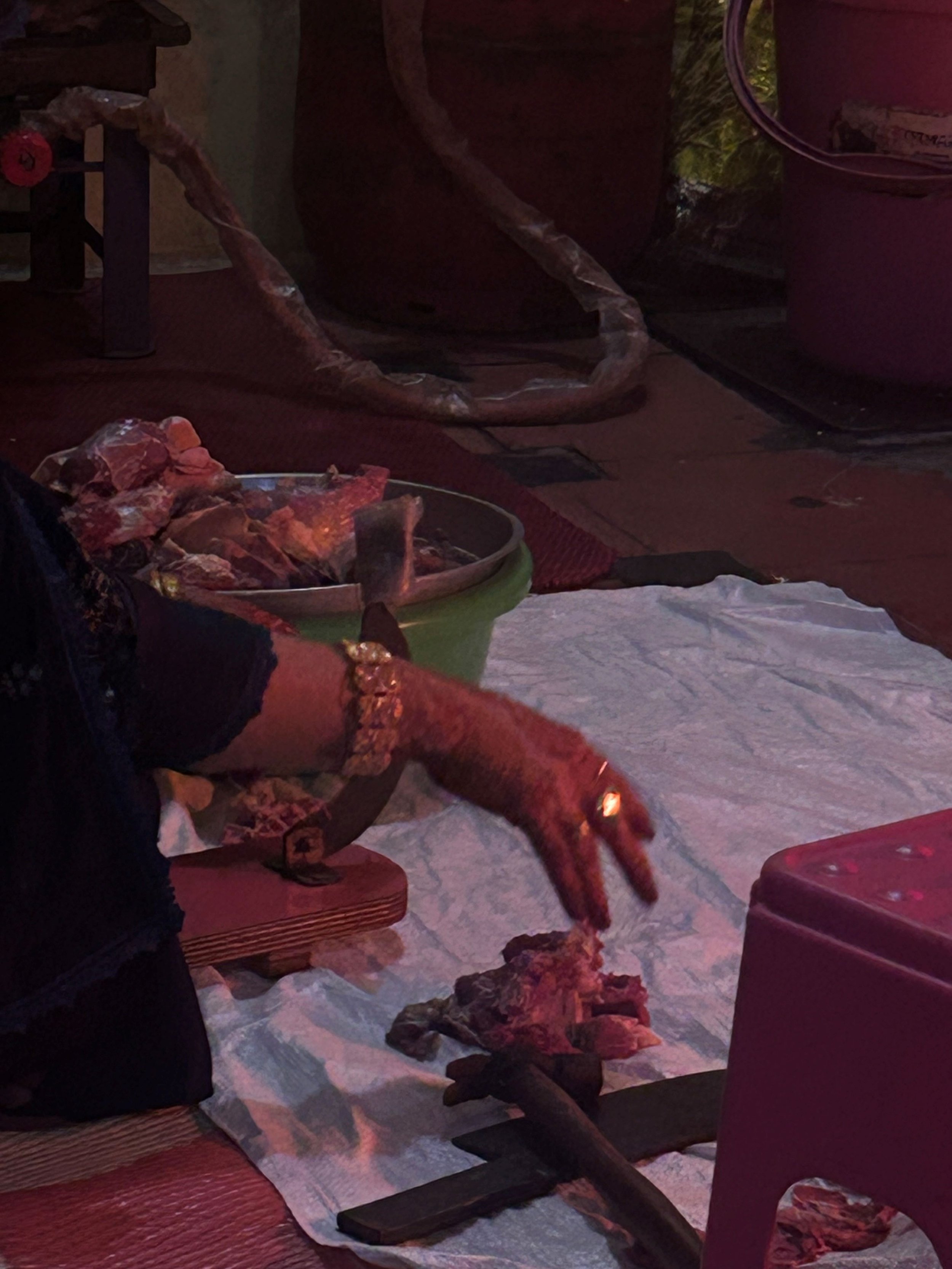

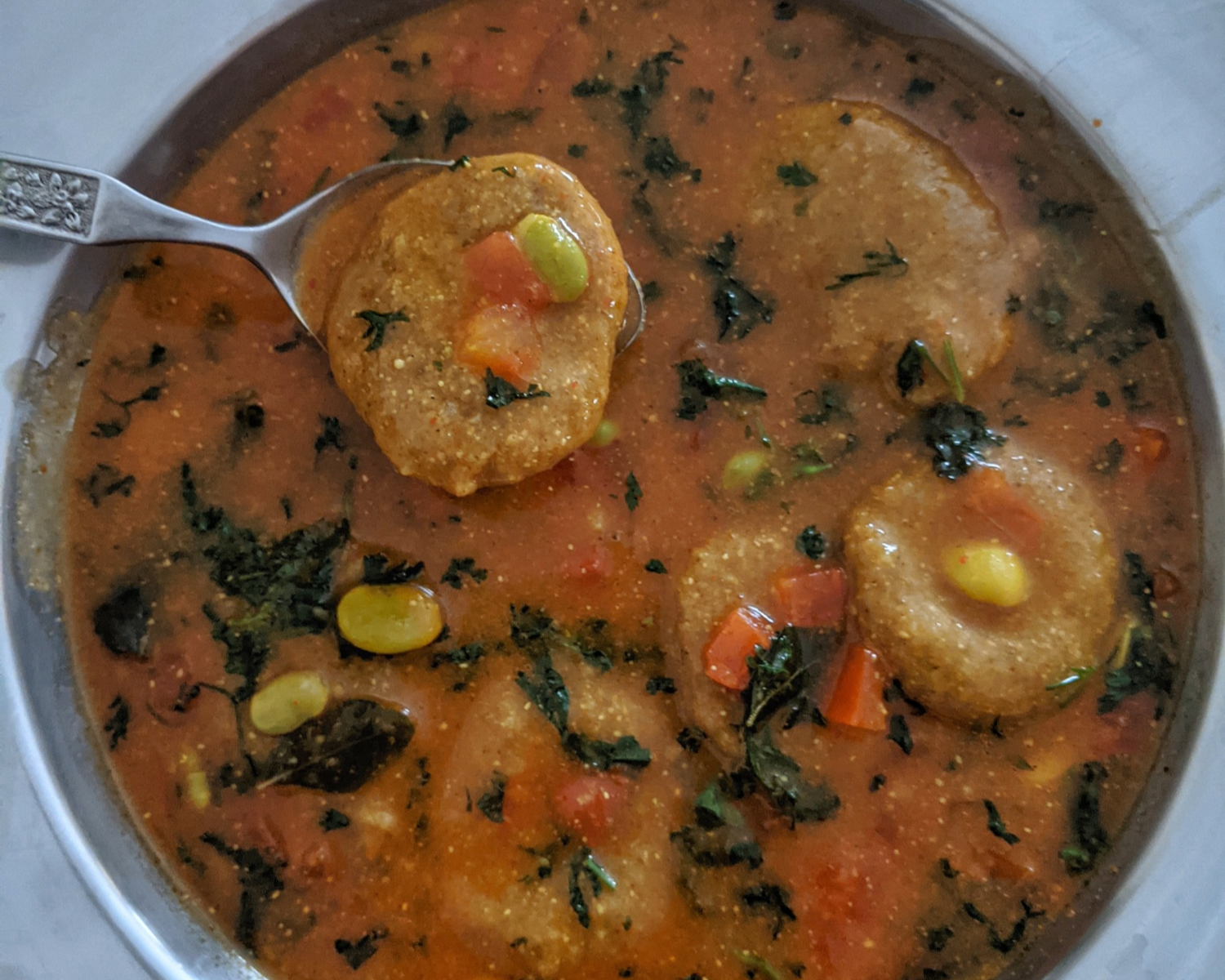
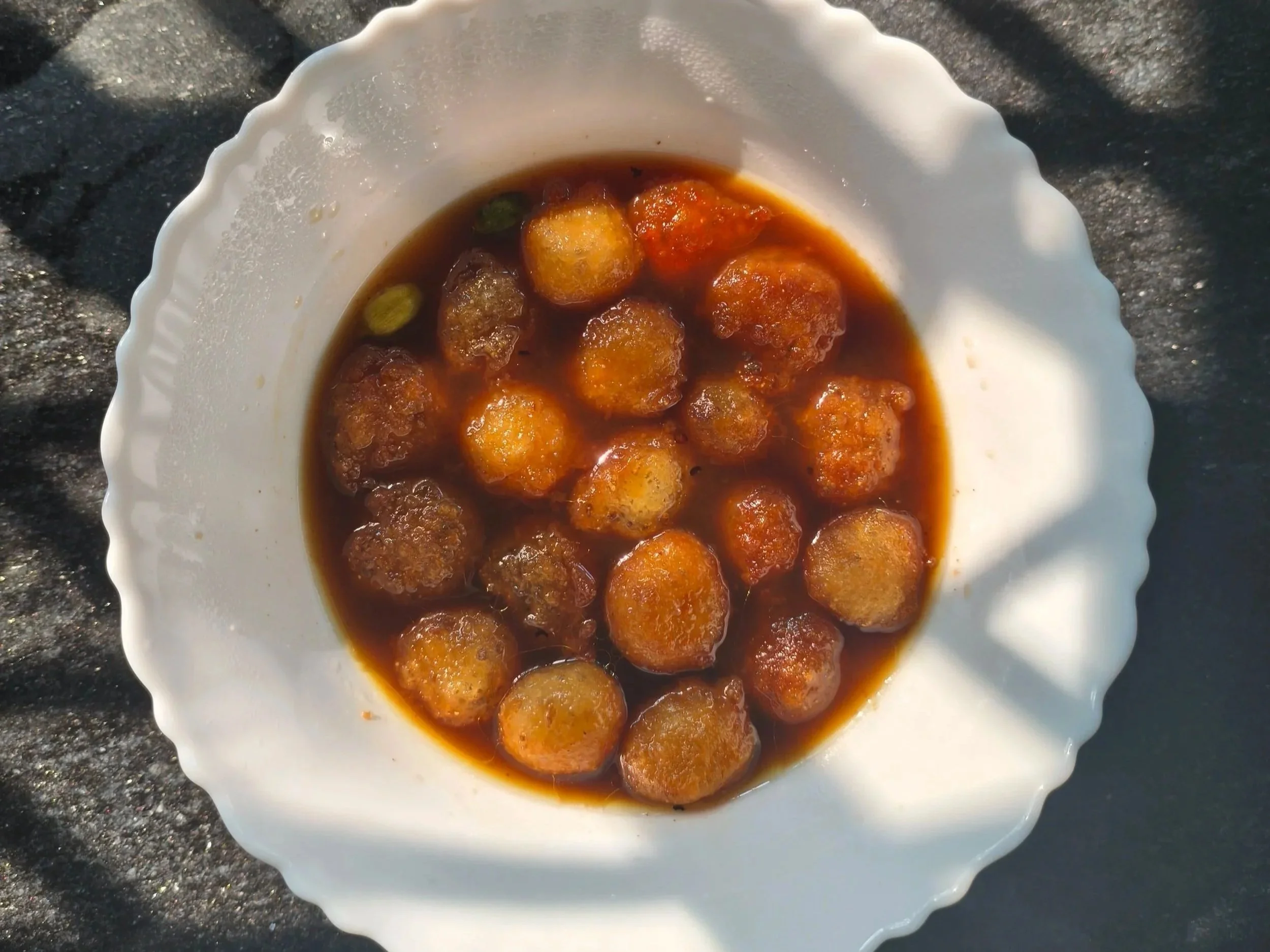
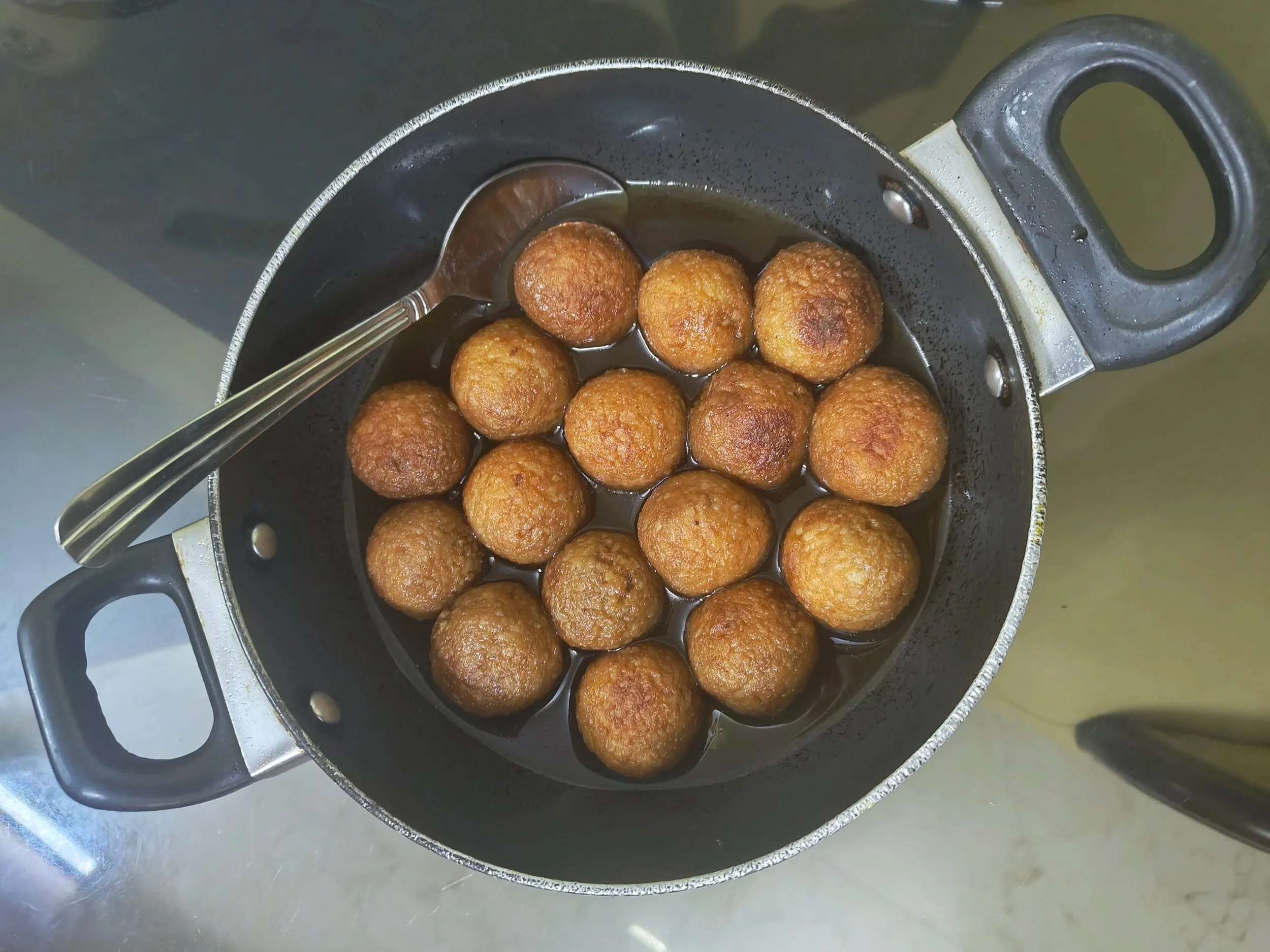

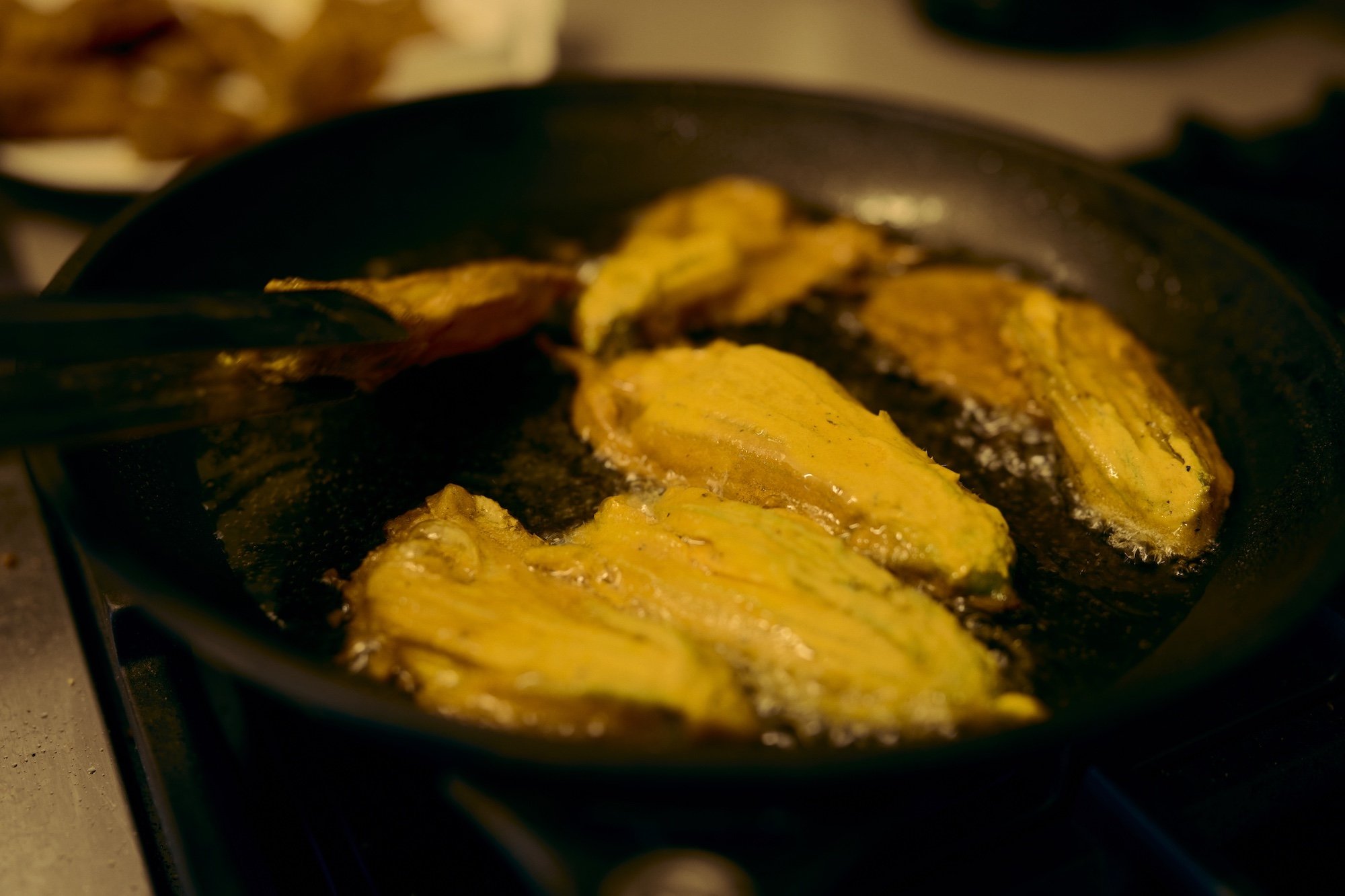
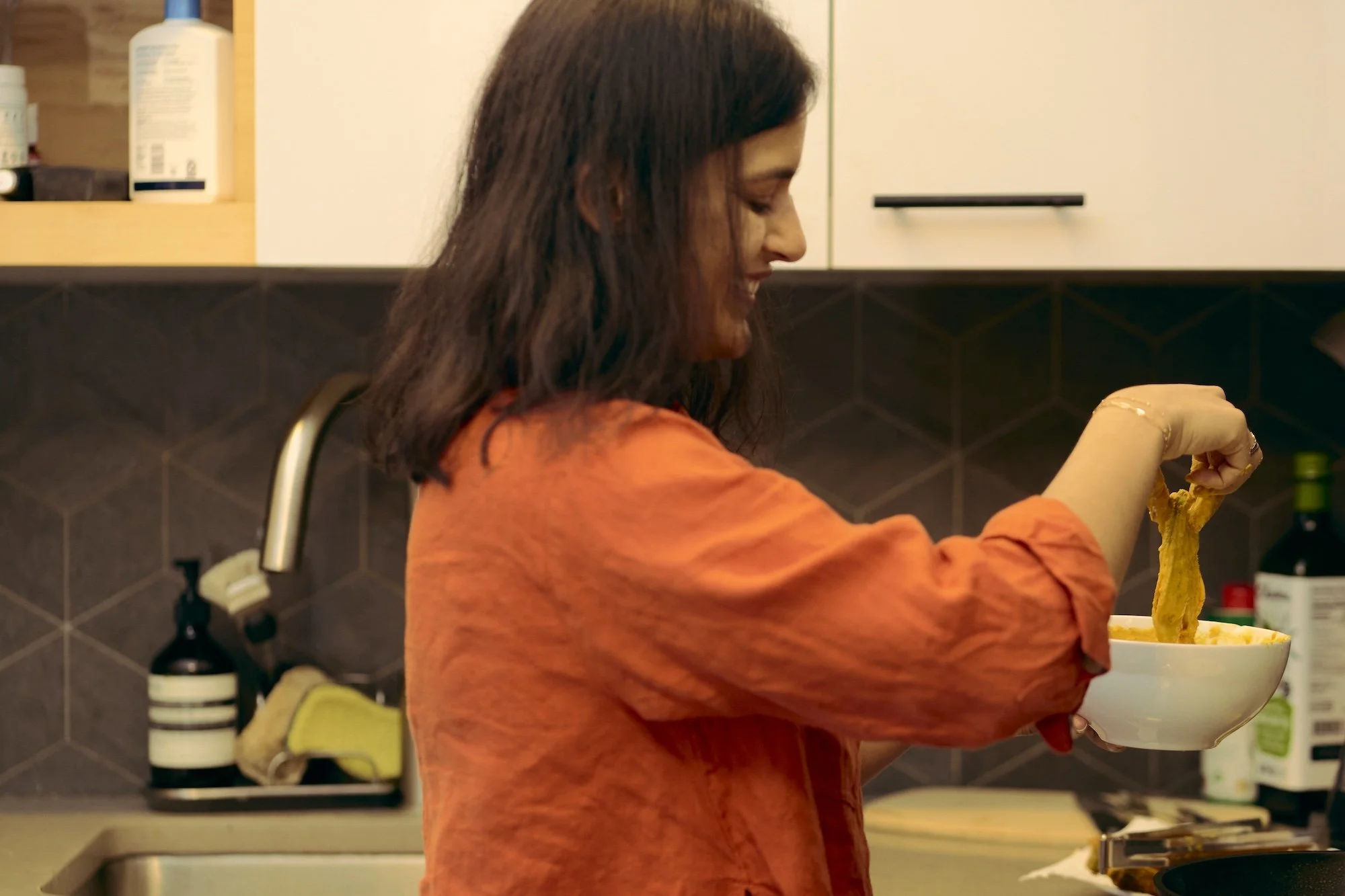
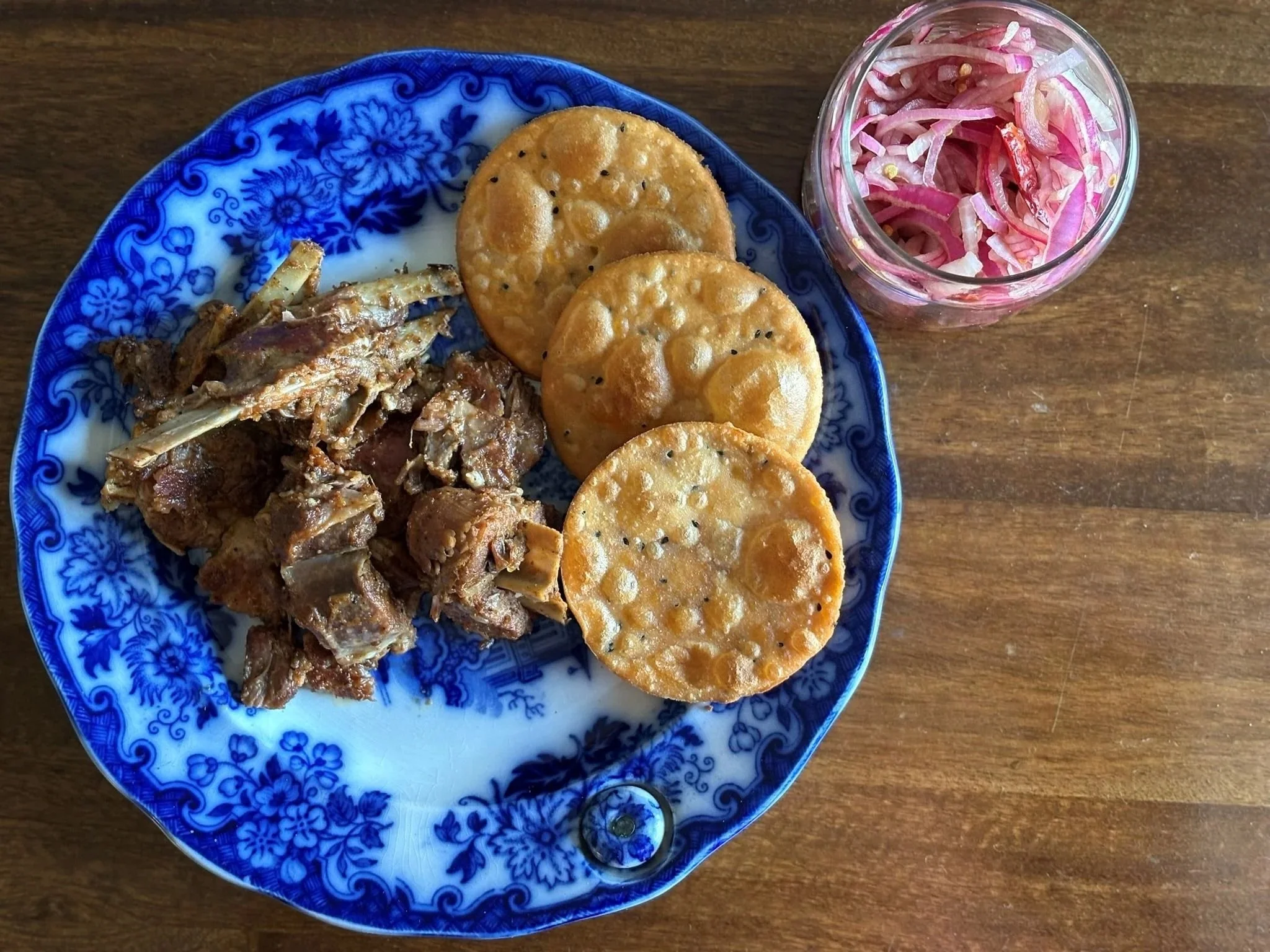
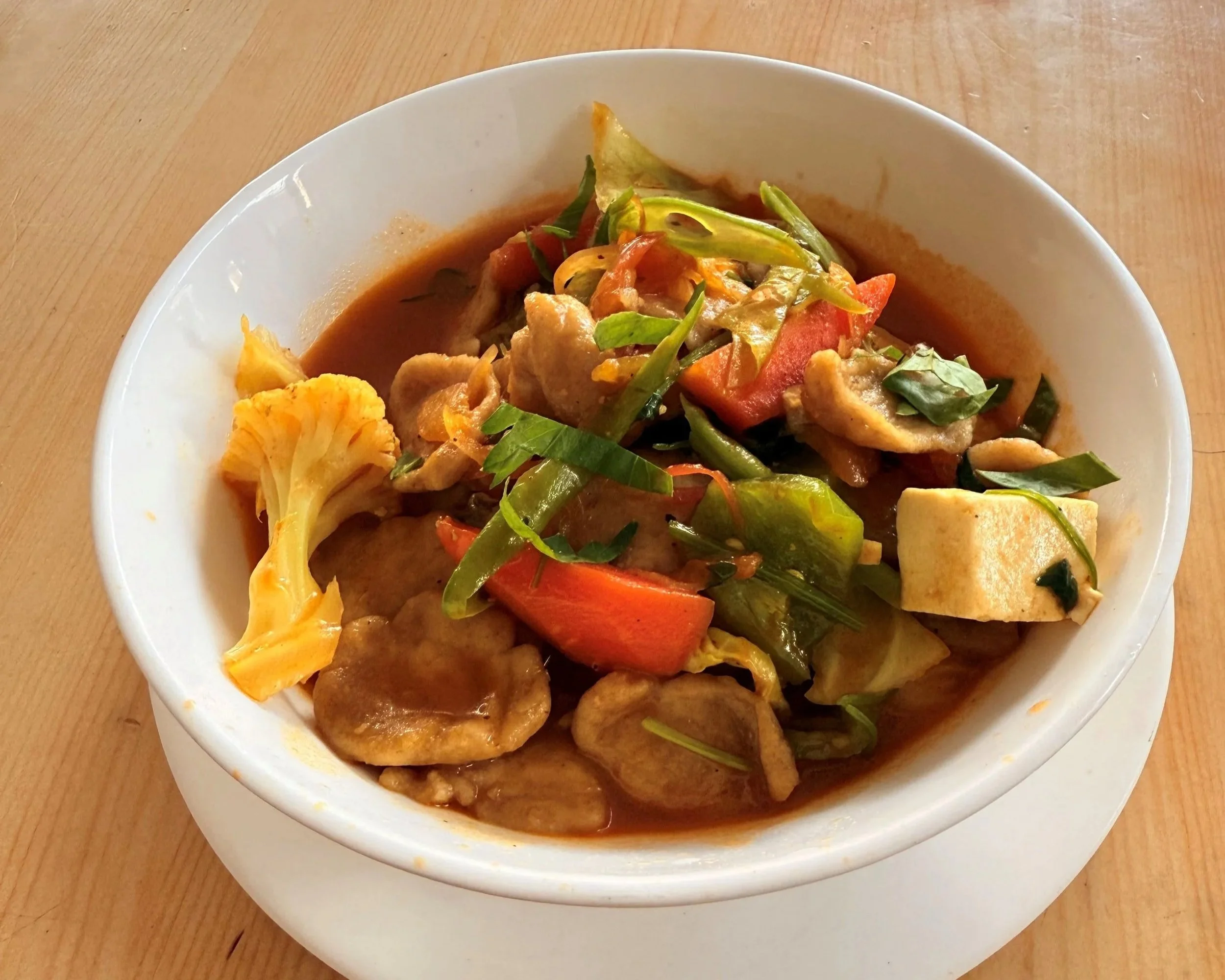
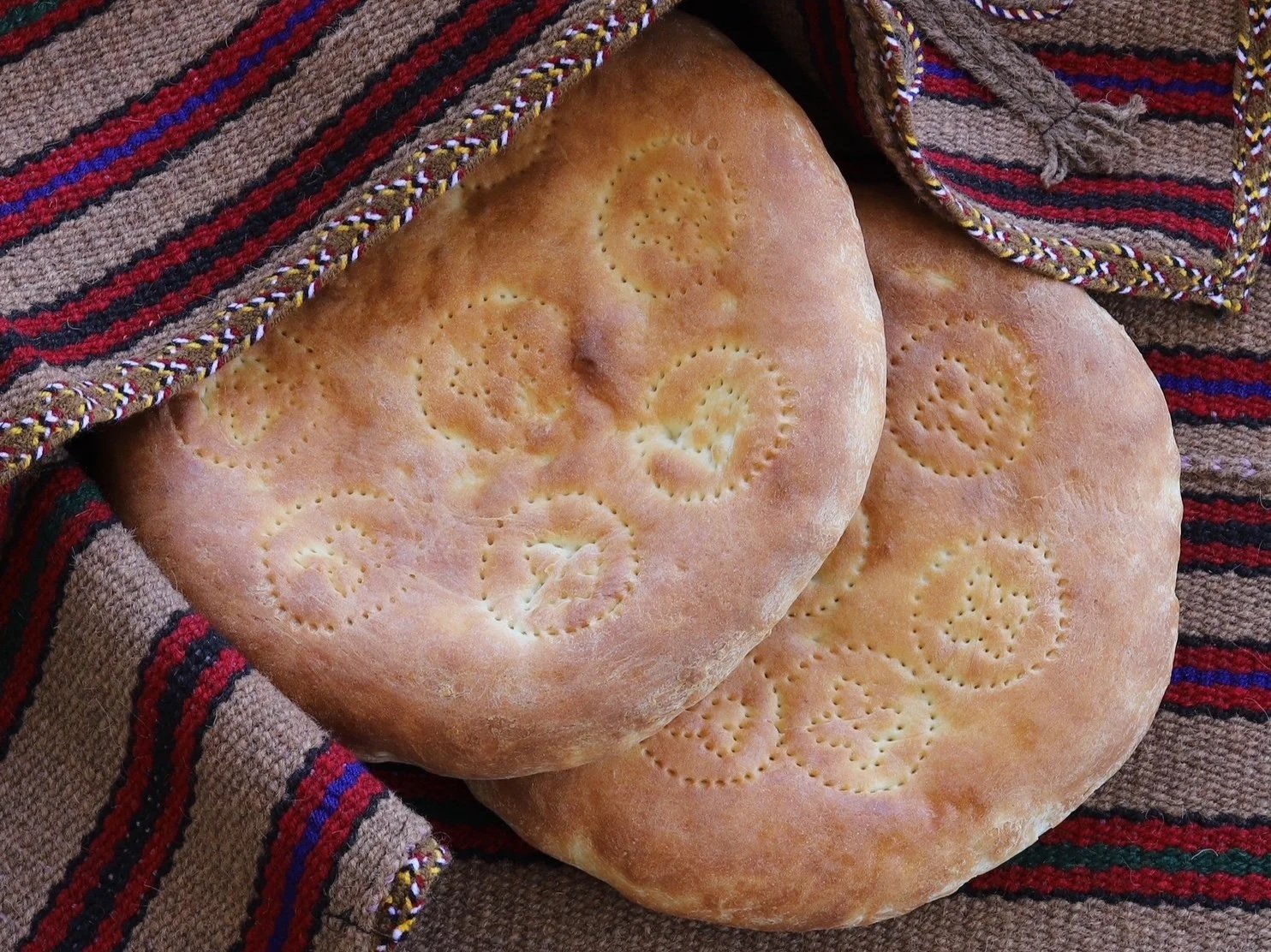
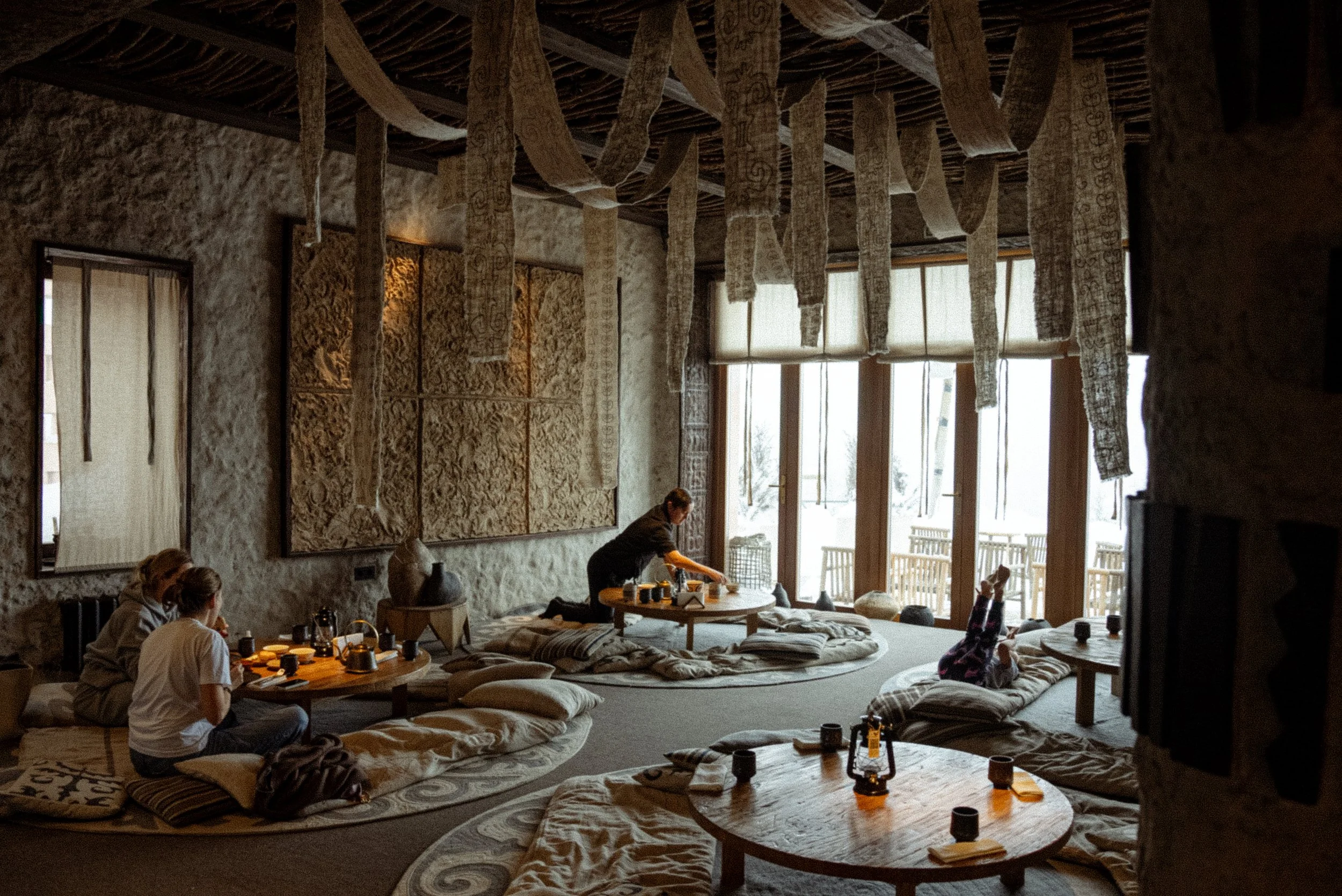
Neo-nomad cuisine of Central Asia | Terrence Manne